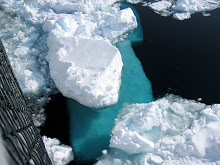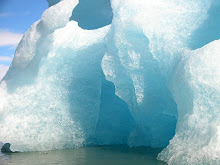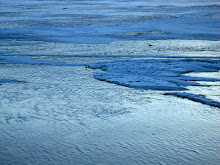"Sea ice is also melting quickly," she said, "another new record low for ocean area covered was documented this past January by the National Snow and Ice Data Center adding even more freshwater to the relatively calm Arctic Ocean."
De Steur noted that an additional factor is that more of the Arctic's sea ice is younger and thinner, not the older and thicker ice as in the past. That makes the ice "more mobile and could exit the Arctic faster," she said. "In the worst case, these Arctic outflow surges can significantly change the densities of marine surface waters in the extreme North Atlantic. What happens then is hard to predict."













